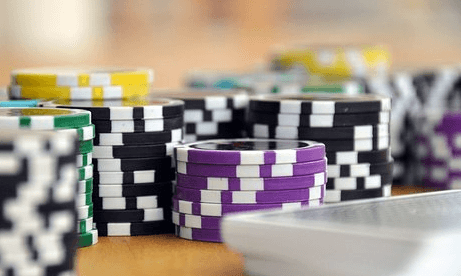Welcome to the intriguing intersection of poker and psychology, where the dynamics of strategy, decision-making, and human behavior converge. In “Understanding the Mental Game of Poker: A Guide for Poker Psychology Students,” we embark on a journey to unravel the intricate connection between the mind and the cards. Poker is not merely a game of chance; it is a psychological battlefield where players navigate the complexities of emotions, intuition, and strategic thinking. This guide is tailored for poker enthusiasts and psychology students alike, seeking to explore the fascinating interplay between the mental aspects of the game and the principles of psychology. From deciphering opponents’ tells to mastering the art of bluffing, we delve into the nuances that make poker a captivating study in human psychology. Whether you’re a seasoned player looking to enhance your understanding of the mental game or a psychology student intrigued by the application of theories in a real-world context, this guide promises insights into the intricate psyche of poker players and the strategies that define success at the table.
Analyzing Mental Strength and Resilience in Poker
In the dynamic realm of poker, mental strength and resilience stand as crucial pillars that can make the difference between success and defeat. The ability to maintain focus, composure, and a clear mindset amid the unpredictability of the game is a hallmark of a resilient poker player. One must navigate through the highs of winning streaks and the lows of inevitable losses with a balanced emotional state, preventing tilt—a state of emotional frustration that often leads to poor decision-making. Analyzing mental strength involves understanding how players cope with adversity, adapt to changing circumstances, and bounce back from setbacks.
Resilience in poker extends beyond individual hands and sessions; it encompasses a player’s capacity to endure the inherent volatility of the game over the long run. Players must overcome bad beats, downswings, and the inherent variance in poker with a tenacious spirit. Building mental resilience involves cultivating a mindset that views challenges as opportunities for growth rather than insurmountable obstacles. The ability to analyze and learn from mistakes, rather than dwelling on them, contributes to a player’s mental fortitude.
Moreover, mental strength in poker is intertwined with decision-making under pressure. The stakes are high, and each decision carries consequences. A mentally strong player remains focused, avoids succumbing to external pressures, and makes rational choices based on probabilities and strategy rather than emotion. As we delve into the analysis of mental strength and resilience in poker, it becomes evident that these qualities are not only integral to success at the tables but also resonate as valuable life skills with applications far beyond the poker room.
Mastering Emotional Control at the Poker Table
Mastering emotional control is crucial for success at the poker table. Emotions like anger, fear, and overconfidence can cloud judgment and lead to poor decision-making. To develop emotional control, it’s important to recognize and acknowledge your feelings without letting them dictate your actions. Staying calm and composed allows you to make better decisions and increase your chances of winning. Additionally, being aware of your opponents’ emotions can give you an edge in the game by providing insights into their hand strength.
Recognizing that poker is a game of skill and strategy, not just luck, is key to mastering emotional control. By taking a deep breath, stepping back, and assessing the situation objectively, you can avoid making impulsive choices based on emotions. Furthermore, reading poker tells, such as body language and facial expressions, can provide valuable information about your opponents’ emotions and help inform your decisions. Ultimately, with practice and discipline, harnessing the power of psychology can improve your poker game and increase your chances of coming out on top.
Effective Strategies for Reading Poker Tells
Being able to read your opponents in poker is essential for success, and this can be achieved through the skill of reading poker tells. A poker tell refers to subtle clues or behaviors displayed by a player that reveal information about the strength or weakness of their hand. To become proficient at reading poker tells, one must be observant and pay attention to every detail at the table, including body language, facial expressions, and chip handling. For instance, a player who is bluffing may exhibit nervous gestures like fidgeting or avoiding eye contact, while someone with a strong hand might display confidence through relaxed posture and steady breathing.
However, it is important to remember that not all tells are reliable indicators, as some players are skilled at concealing their emotions. Nevertheless, by consistently observing and analyzing opponents’ behaviors, patterns can be identified, leading to more informed decisions during gameplay. It is crucial to understand that poker is not solely about the cards held but also about comprehending the psychology behind opponents’ actions. Therefore, honing observation skills and learning to read poker tells can provide an advantage in the game.
Developing a Winning Mindset in Poker
Having a winning mindset in poker is crucial for success, as it allows players to stay focused and confident throughout the game. This involves managing emotions effectively, staying disciplined and patient, and understanding the psychological aspects of the game. By developing a winning mindset, players can improve their overall performance and increase their chances of winning in the long run.


